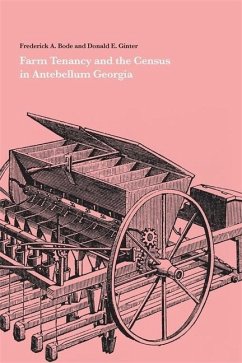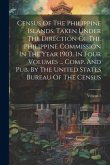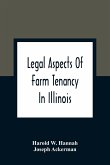Historians of the nineteenth-century rural South have long distinguished the antebellum agricultural system of plantations and gang-style slave labor from the family tenancy system that is thought to have developed only after the Civil War. In Farm Tenancy and the Census in Antebellum Georgia, however, Frederick Bode and Donald Ginter demonstrate a far greater consistency in economic traditions than many historians have recognized. Through a detailed critical interpretation of the 1860 federal census, Bode and Ginter show that extensive family tenancy, and probably sharecropping, were not the creations of Emancipation and Reconstruction, but instead were widely present before the upheaval of the Civil War.
Hinweis: Dieser Artikel kann nur an eine deutsche Lieferadresse ausgeliefert werden.
Hinweis: Dieser Artikel kann nur an eine deutsche Lieferadresse ausgeliefert werden.








